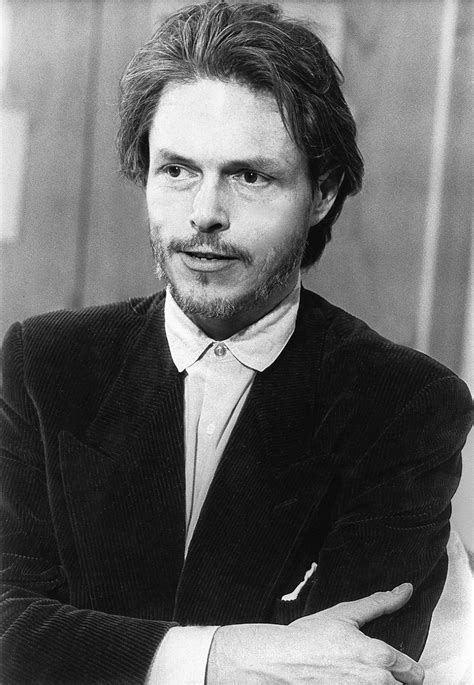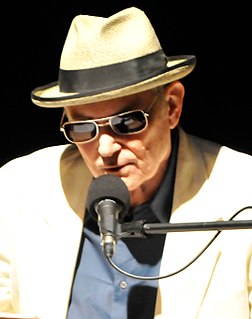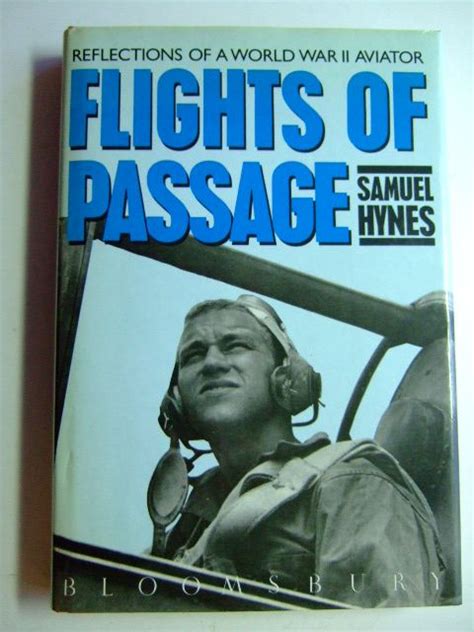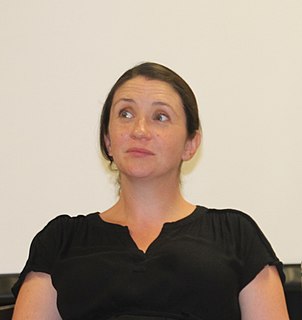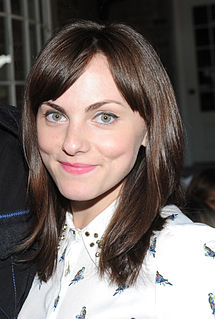A Quote by Michael Lindsay-Hogg
One of the things I find in writing about people who are dead is that, after a short or long time, no matter how close the relationship was, they become like characters in fiction.
Related Quotes
It's about being in a race with time - just having a strong sense of mortality, and the idea of, How much time do you have left? How do you want to spend it? What I always come up with is: keep on writing, keep on working. But you can become sterile. It's become a matter of trying to find inspiration someplace outside of my own head, which I've been using exclusively for too long.
When writers are self-conscious about themselves as writers they often keep a great distance from their characters, sounding as if they were writing encyclopedia entries instead of stories. Their hesitancy about physical and psychological intimacy can be a barrier to vital fiction. Conversely, a narration that makes readers hear the characters' heavy breathing and smell their emotional anguish diminishes distance. Readers feel so close to the characters that, for those magical moments, they become those characters.
Approaching subject matter to photograph is like meeting a person and beginning a conversation. How does one know ahead of time where that will lead, what the subject matter will be, how intimate it will become, how long the potential relationship will last? Certainly, a sense of curiosity and a willingness to be patient to allow the subject matter to reveal itself are important elements in this process.
When you're writing a book that is going to be a narrative with characters and events, you're walking very close to fiction, since you're using some of the methods of fiction writing. You're lying, but some of the details may well come from your general recollection rather than from the particular scene. In the end it comes down to the readers. If they believe you, you're OK. A memoirist is really like any other con man; if he's convincing, he's home. If he isn't, it doesn't really matter whether it happened, he hasn't succeeded in making it feel convincing.
It's interesting how many science fiction writers get going when they are very young. I was on a program with Greg Bear and he mentioned that he had gotten started writing when he was eight. And I began writing when I was 10. I think we're influenced by the stuff, we find it and we love it and we're influenced by it....I know I collected my first rejection slip when I was 13, and I went on collecting them for a long time after that.
The hardest part about writing fiction is finding long stretches of time to do it: for me, this means writing mostly on Saturdays and Sundays. But I am always thinking about my characters, jotting down ideas in stolen moments and hoping I'll be able to make sense of them when the weekend rolls around.
Where the shadow of the bridge fell I could see down for a long way, but not as far as the bottom. When you leave a leaf in water a long time after awhile the tissue will be gone and the delicate fibres waving slow as the motion of sleep. They don't touch one another, no matter how knotted up they once were, no matter how close they lay once to the bones.
The movement for women's liberation was about an emotional transformation, an explosion, a feeling all over the country that things must be different, and ideas about how they should be. I think fiction can capture that kind of thing better than other genres because in fiction you can explore the feelings of your characters - the before and the after.
The satisfaction of short fiction does not come close to the rich pleasure I get as a writer in the long deep immersion in the same long work and its growing complexity. I suppose you might say I love to wallow in my characters and imaginary worlds. I love to play with the whole necklace, not just one glittering stone.
You couple that with how I looked when I was younger, and growing up... The voice is not quite breaking. It's awful. No, I don't enjoy that at all. But that's one of the things people love and find so endearing about the Harry Potter series, and why they've lasted so long. Because people have grown up with us, and they care about the characters. They're not just some characters in the film, they're people you can relate to, and you care about, and you grew up with, and when they die in this film, people feel it!
Writing fiction lets you be a little more emotional and unguarded, a little freer. Writing fictional characters is also really different from writing about real people. In nonfiction, you can only say so much about the people you interact with. After all, they're actual people, their version of their story trumps yours. In a novel, you can build a character, using certain parts or impressions of someone you know, and guessing or inventing others, without having to worry that your guesses or memories or inventions are wrong.
